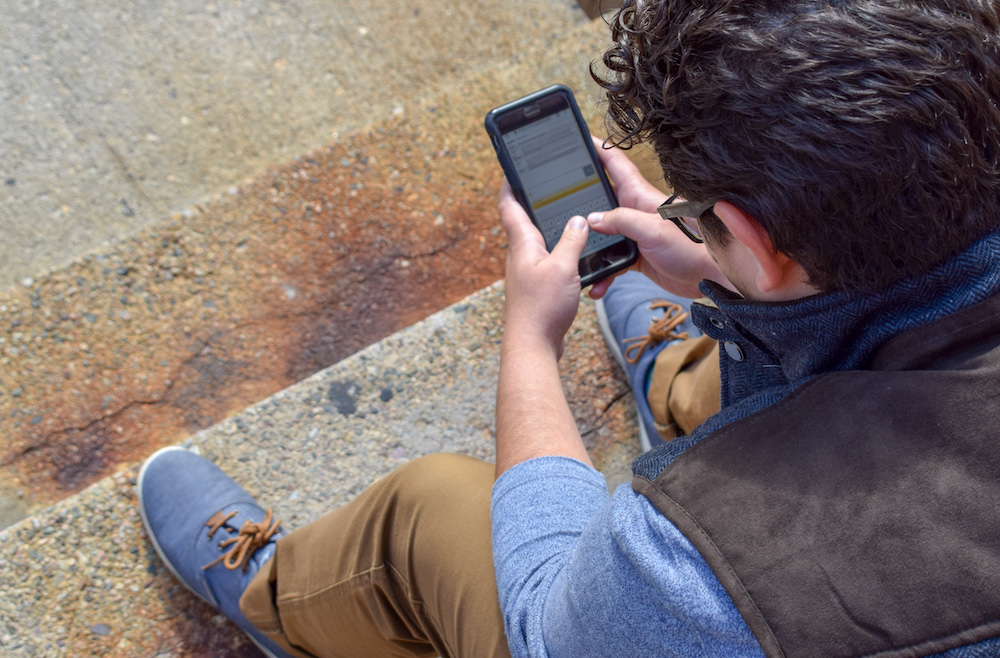With more sexual assault survivors reaching out for support, the Boston Area Rape Crisis Center (BARCC) has launched a web-based chat hotline service to make its resources more accessible.
BARCC provides free, confidential support and services for sexual violence survivors. It’s seen a spike in people reaching out lately as the #MeToo movement gained attention and the topic of sexual assault took over the news cycle around Brett Kavanaugh’s Supreme Court nomination.
In the week following Dr. Christine Blasey Ford’s testimony, BARCC saw a 366 percent increase in calls to its phone hotline. The first day after her testimony, BARCC volunteers answered a regular day’s worth of calls by 11 a.m.
BARCC hopes the launch of the chat hotline can help meet this need, making the rape crisis center more accessible for all kinds of sexual assault survivors.
“There are people who may have limited access to phones or have no private space to talk, so the hotline is not available to them,” said Sharon Imperato, BARCC Clinical Innovation Projects and Training Director. “A lot of people have a discomfort or fear of talking on the phone, and also there’s something about saying what you’re experiencing versus writing it — a lot of people are more comfortable when writing, and they’re able to articulate themselves more.”
The BARCC chat hotline will be a resource for those who are deaf or hard of hearing, she added, and survivors who are nonverbal or have speech disabilities. People who have disabilities are at a higher risk of experiencing sexual violence, Imperato noted.
Younger people may be more inclined to reach out through the chat hotline, as well, since they’re often more comfortable communicating online rather than on the phone. The online option may also better reach male and transgender survivors, Imperato added, as they are more likely to use web-based resources.
“They’re researching first and looking for things before disclosing” their sexual assault, she said. “These are the populations that are not really thought of when we think of survivors. They’re wanting to feel things out first and might feel better reaching out to an online hotline.”
Importance of BARCC chat hotline around the holidays
The launch of the chat hotline comes not only as more people have been reaching out to BARCC, but also as the crisis center anticipates a flood of sexual assault survivors seeking support around the holidays.
“I’ve been doing this work for a long time I can definitely say we do see an increase in people reaching out during holidays,” said Imperato. “What do you think about the holidays? What do you imagine? You imagine joy and happiness. For someone who experiences sexual violence, they may not be feeling those things.”
That means many survivors put on a positive face, pretending to be happy around others. Then, they need a place to turn to where they can share how they are actually feeling.

Most people who experience sexual violence experience it by someone that they know, according to Imperato. Going home for the holidays may mean that a sexual assault survivor comes into contact with their abuser or people who know their abuser. They could also be revisiting a place where sexual assault occurred, which could trigger an intense response.
Holidays also disrupt a survivor’s support network. They’re away from their friends and may not feel like they can reach out to them, since everyone is busy with their own family and holiday events. They don’t want to be a burden, Imperato said.
“When it comes to any type of holidays, we always tend to advertise our services more… and remind people we’re here for them,” she said. “We are always here for them no matter what.”
The chat hotline is a new extension of that support. BARCC’s online chat hotline is available at barcc.org/chat from 9 a.m. to 11 p.m. daily, and offered in addition to the telephone hotline, which is available 24/7 at 800-841-8371.























